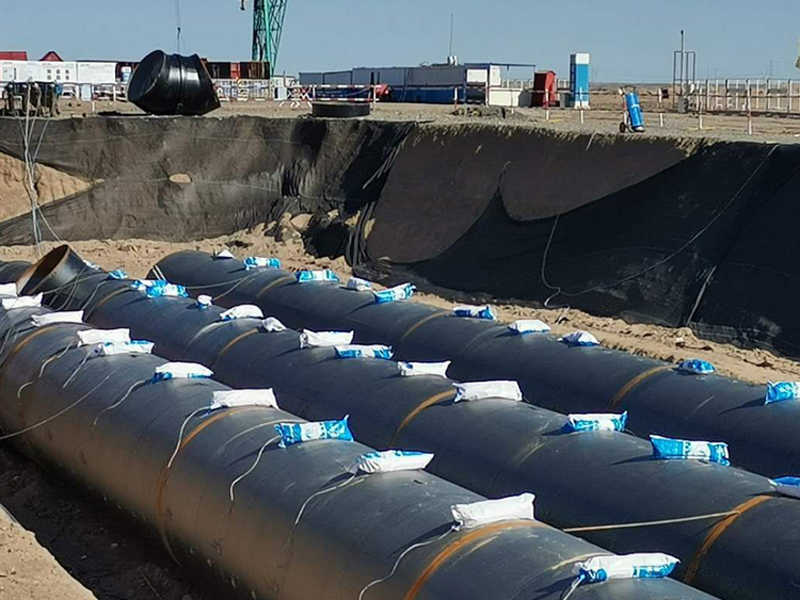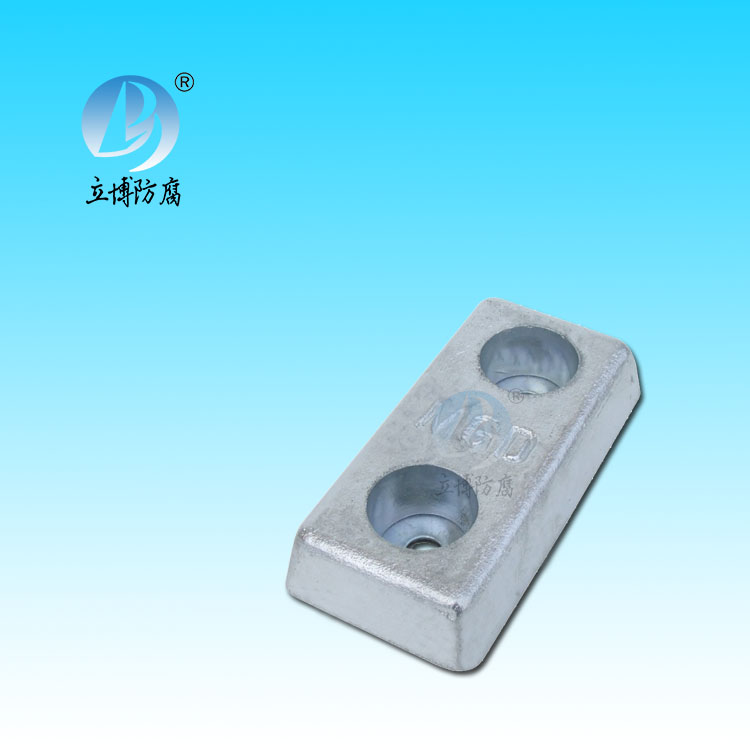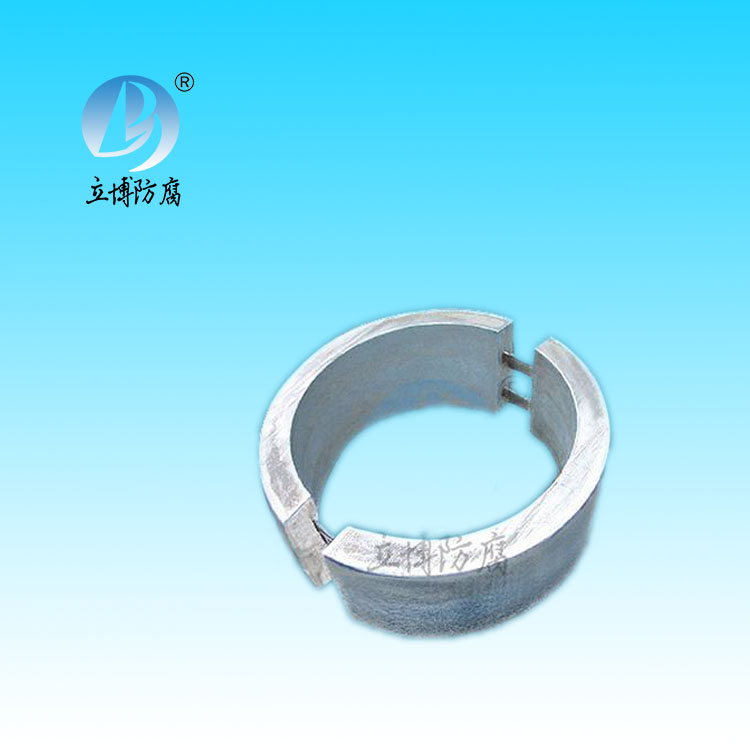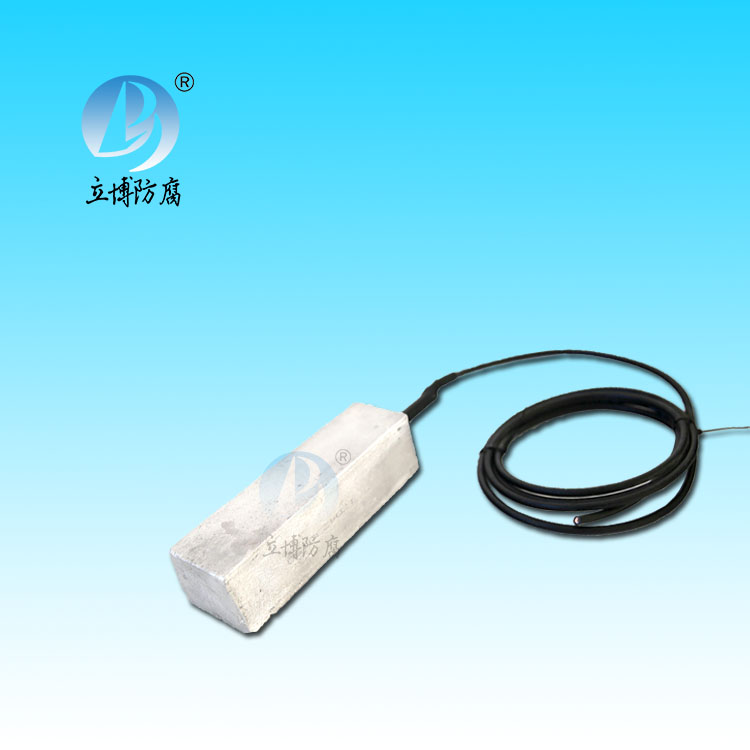News
News
- What is a sacrificial anode
- Basic requirements for reference...
- What does the reference electrode do...
- Why are zinc blocks attached to the ...
- What is the principle of impressed...
- What material does metal structure...
Contact
Phone:18739187123
hotline:0391-7588881
E-mail:970512272@qq.com
Address:Wuzhi County, Jiaozuo City, China
Company News
Metal protection
- Author:Libo
- Source:wamericanfreedomlawncare.com
- Date:2021-08-12
- Click:0

When a metal comes into contact with the surrounding medium, the damage caused by chemical and electrochemical action is called corrosion of a metal. From a thermodynamic point of view, with the exception of a few precious metals (such as gold, platinum), all metals have the tendency to convert into ions, that is to say, metal corrosion is a spontaneous and universal phenomenon. After the metal is corroded, the appearance, color and mechanical properties will change, resulting in equipment damage, pipeline leakage, product pollution, resulting in combustion or explosion and other malignant accidents and serious waste of resources and energy, so that the national economy suffers huge losses. It is estimated that the annual economic losses caused by metal corrosion in developed countries account for about 3.5% ~ 4.2% of its GROSS national product, more than the annual total losses of major disasters (fire, wind and earthquake, etc.). It has even been estimated that around 100 million tons of metal are corroded and destroyed worldwide every year! Therefore, it is of great significance to study the corrosion mechanism and take protective measures for economic construction.
There are many methods of metal corrosion prevention, including improving the nature of the metal, separating the protected metal from the corrosive medium, or performing surface treatment on the metal, improving the corrosive environment and electrochemical protection.
1. Improve the nature of metals.
According to different uses, choose different materials to form corrosion resistant alloy or add alloy elements to the metal to improve its corrosion resistance, which can prevent or slow down the corrosion of the metal. For example, the addition of nickel to steel makes stainless steel more resistant to corrosion.
Two, the formation of a protective layer.
It is an effective method to prevent metal corrosion to cover the metal surface with various protective layers and separate the protected metal from the corrosive medium. There are two kinds of protective layer which are generally used in industry: non-metallic protective layer and metal protective layer. They are achieved by chemical, physical and electrochemical methods.
1. Phosphating treatment of metals. Iron and steel products to oil, rust, into the specific composition of phosphate solution immersion, can form a layer of insoluble in water on the surface of the metal phosphate film, this process is called phosphating treatment.
The phosphating film is dark gray to black gray, the thickness is generally 5~20 microns, and has good corrosion resistance in the atmosphere. Membrane is microporous structure, strong adsorption capacity of paint, such as paint base, corrosion resistance can be further improved.
2. Oxidation treatment of metals. Iron and steel products are added to the mixed solution, heated treatment, its surface can form a layer of about 0.5~1.5 micron thickness of blue oxide film (the main component is Fe3O4), in order to achieve the purpose of steel corrosion prevention, this process is called bluing treatment, referred to as bluing. This oxide film has great elasticity and lubricity, and does not affect the accuracy of parts. Therefore, the parts of precision instruments and optical instruments, spring steel, thin steel sheet, fine steel wire and other commonly used bluing treatment.
3. Non-metallic coating. With non-metallic materials such as paint, plastic, enamel, mineral grease coated on the metal surface to form a protective layer, known as non-metallic coating, can also achieve the purpose of corrosion prevention. For example, ships, carriages, buckets and so on are often painted, car shells are often painted, guns, machines are often coated with mineral oil and so on. Spray metal surface with plastic (such as polyethylene, polyvinyl chloride, polyurethane, etc.), better than spray paint. This kind of plastic covering layer is dense and smooth, color and lustre is gorgeous, have the double function of corrosion prevention and decoration concurrently.
Enamel is a high silicon content of glass enamel, has excellent corrosion resistance, so as a corrosion resistant non-metallic coating, widely used in petrochemical, medicine, instruments and other industrial departments and daily necessities.
4. Metal protection. It is a protective coating formed by a metal plating on the surface of another metal product to be protected. The former metal is often called the coated metal. The formation of metal coating, in addition to electroplating, electroless plating, there are hot dip plating, hot spray plating, infiltration, vacuum plating and other methods.
Hot dip plating is a method of immersing metal parts in molten metal to obtain metal coating, as the coating of metal is low melting point metal, such as zinc, tin, lead and aluminum, hot dip galvanizing is mainly used for steel pipe, steel plate, steel strip and steel wire, the most widely used; Hot tin for thin steel plate and food processing and other storage containers; Hot lead plating is mainly used in chemical corrosion prevention and coated cables; Hot aluminum plating is mainly used for high temperature oxidation resistance of iron and steel parts.
Third, improve the corrosive environment.
Improving the environment is of great significance to reduce and prevent corrosion. For example, reducing the concentration of corrosive media, removing oxygen from the media, and controlling ambient temperature and humidity can reduce and prevent metal corrosion. It is also possible to reduce and prevent metal corrosion by adding substances (called corrosion inhibitors) that can reduce the corrosion rate to the corrosive medium.
4. Electrochemical protection Law.
Electrochemical protection law is a method to prevent or reduce metal corrosion by taking measures on metal equipment according to electrochemical principle to make it become the cathode in corrosion battery.
1. Sacrificial anode protection. Sacrificial anode protection is to use a metal or alloy with a lower electrode potential than the protected metal as the anode, which is fixed on the protected metal to form a corrosive battery, and the protected metal is protected as the cathode.
Sacrificial anodes are usually made of aluminum, zinc and their alloys. This method is often used to protect the hull of sea vessels, various metal equipment and components in seawater, and to prevent corrosion of large equipment (such as oil storage tanks) and oil pipelines.
2. Impressed current method. The protected metal and another additional electrode are used as the two poles of the electrolytic cell, so that the protected metal is used as the cathode, and the cathode is protected under the action of an applied direct current. This method is mainly used to prevent corrosion of metal equipment in soil, sea water and river water.
Although metal corrosion brings great harm to production, the principle of corrosion can also be used to serve production and develop corrosion processing technology. For example, in the electronics industry, printed circuits are widely used. The production method and principle of the circuit is printed on copper foil by photographic copying method, and then the figure is not protected by photographic glue copper with ferric chloride solution corrosion, you can get clear line printed circuit board. In addition, there are electrochemical etching, plasma etching new technology, better than using ferric chloride corrosion copper wet chemical etching method, higher resolution.








 客服QQ
客服QQ